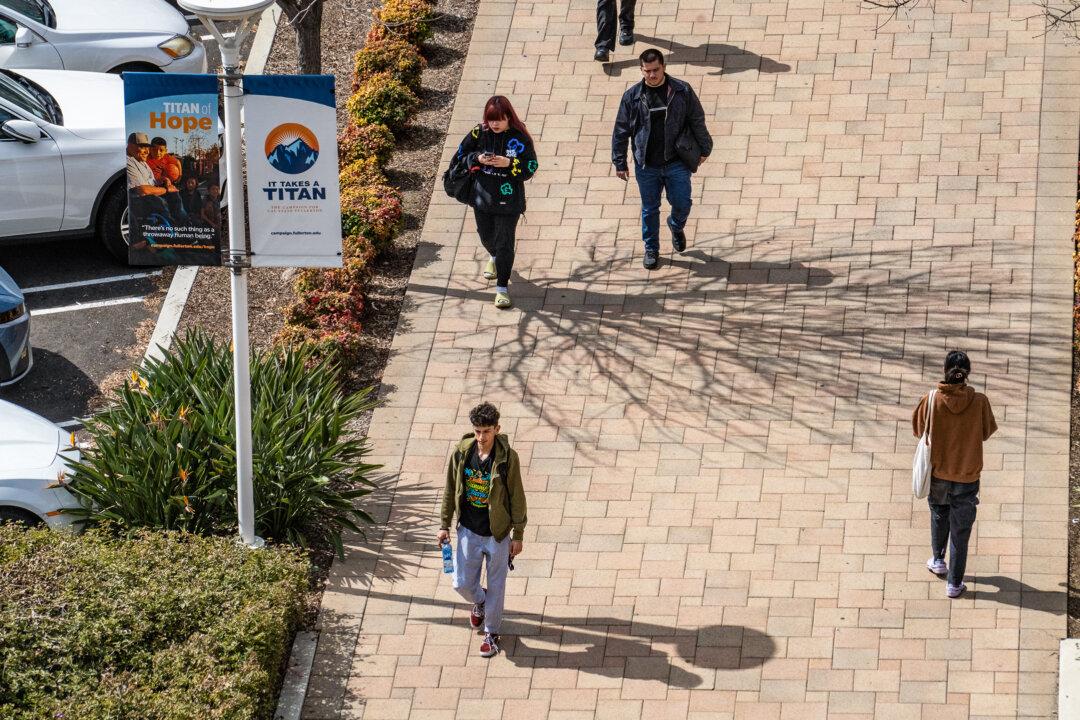The California State University (CSU)—the nation’s largest public four-year higher education system—intends to rescind coronavirus vaccine mandates for students, faculty, and staff, as reported by its faculty association March 2.
The system’s office of human resources and labor relations determined it will “no longer require students to be fully vaccinated against the COVID-19 virus,” according to the California Faculty Association, a union representing 29,000 CSU faculty members.





